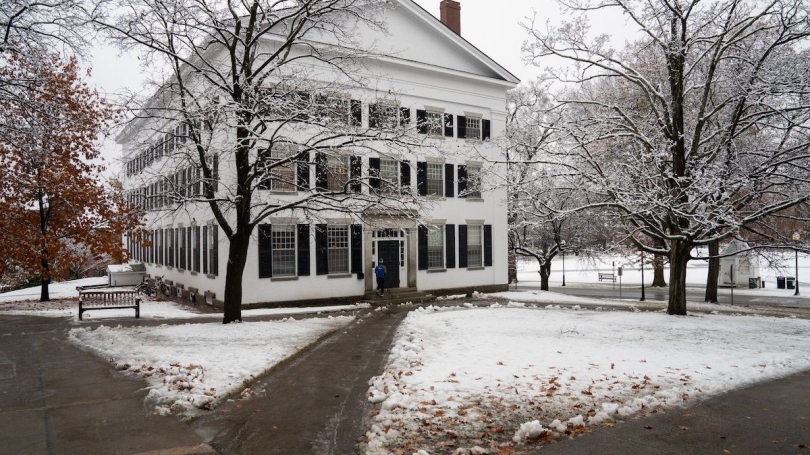
- About
- Departments & Programs
- Faculty Resources
- Governance
- Diversity
- News
Back to Top Nav
Back to Top Nav
Back to Top Nav
Back to Top Nav
The name change aligns with significant changes in the field of Russian and Slavic studies over the past 30 years.
Following a recommendation from the Faculty of Arts and Sciences, the Dartmouth Board of Trustees voted to change the name of the Department of Russian to the Department of East European, Eurasian, and Russian Studies.
The new name aligns with a gradual revision of the department's curriculum, with new major and minor tracks in Eastern European, Eurasian, and Russian studies.
"A narrow focus on Russia reflects neither the state of the field nor the state of the world," department chair Lynn Patyk says. "In the 21st century, it is imperative to expand our students' understanding of the many countries that border and interact with Russia by offering them the opportunity to study the history, politics, and cultures of Eastern Europe and Eurasia as well."
Eurasia refers to the vast land of Siberia, with its Indigenous nonRussian peoples, as well as the former Central Asian republics of the Soviet Union (Uzbekistan, Tajikistan, Kazakhstan, Turkmenistan, and Kyrgyzstan) and the Caucasus region (Georgia, Armenia, Azerbaijan).
Dartmouth students have consistently requested courses that include the languages, histories, and cultures beyond Russia.
"Our entire faculty is committed to decentering Russia and offering Dartmouth students the opportunity to study regions impacted by Russia's colonial legacy," Patyk says. "The war in Ukraine makes this even more urgently necessary."
"The move to include Eastern Europe and Eurasia in the department's purview aligns with significant changes in the field of Russian and Slavic Studies over the past 30 years," says Sam Levey, associate dean for the arts and humanities. "I applaud our faculty for their leadership in increasing understanding of this vital and complex area."
The department's two most recent faculty hires reflect efforts to lay the groundwork for curricular changes. Professor Ainsley Morse, who joined Dartmouth in 2019, brings expertise in South Slavic studies, and Tatiana Filimonova, who joined the department last fall, studies the Russian geopolitical novel, the ideology of Eurasianism, and the Indigenous peoples of Siberia.
This year the department hosts Visiting Professor Lada Kolomiyets from the University of Kyiv to teach courses in Ukrainian and East European literature and culture, and Professor Victoria Somoff is offering the first-year sequence of Ukrainian language. This is the first time that the department has offered another Slavic language in addition to Russian.
The department dates back to 1951, when Dartmouth inaugurated the Department of Russian Civilization.